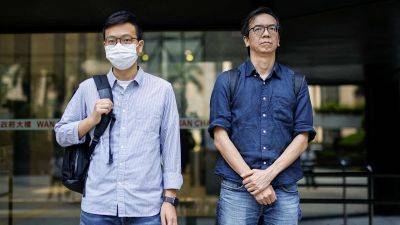More Hong Kongers tune out the news as they adapt to Beijing’s tightening grip
HONG KONG (AP) — Hannah Wong cried when the Hong Kong government effectively forced Apple Daily and Stand News out of business three years ago. Among the last news outlets in the city willing to criticize the government openly, many saw their end as a sign that the old Hong Kong was gone for good.
Today, the 35-year-old makeup artist says she’s gone from reading the news every day to reducing her intake drastically to protect herself from despair.
Four years into a crackdown on dissent that’s swept up democracy-leaning journalists, activists and politicians in this autonomously-governed Chinese city, a lot of people are tuning out the news. It’s a striking sign of change in a city that used to pulse with talk, from morning conversations over newspapers in bustling dim sum restaurants, to lively debates on social media throughout the day, to evening discussions at dinner tables.
Wong says it’s too hard to read the headlines, but avoiding them left her feeling more disconnected. “There’s a loss of the sense of belonging to this place.”
Since Beijing imposed a national security law in 2020, press freedom has narrowed.
In 2021, Apple Daily and Stand News closed down after the arrests of their top management. Hong Kong was ranked 135 out of 180 territories in Reporters Without Borders’ latest World Press Freedom Index, down from 80 in 2021.
On Thursday, two former editors of Stand News were convicted in the first sedition case involving media since the former British colony returned to China’s rule in 1997. The judge said their outlet became a tool for smearing the Beijing and Hong Kong governments during the huge anti-government protests in 2019.
After the verdict, the Hong Kong government said that when journalists base






